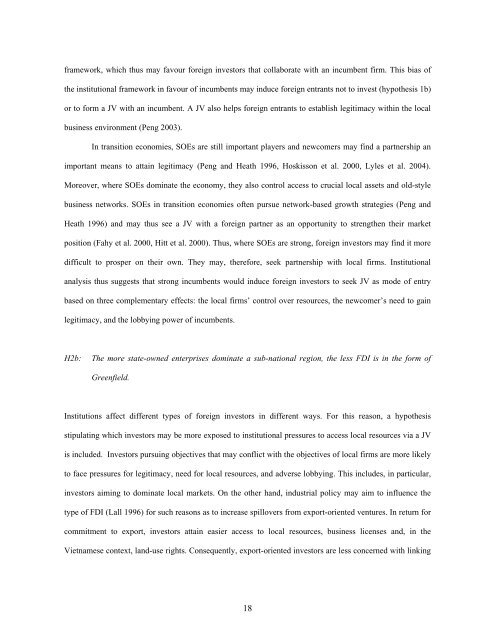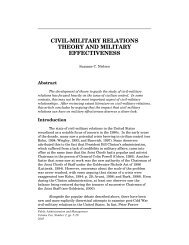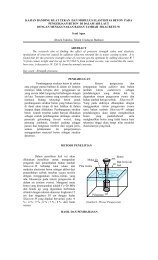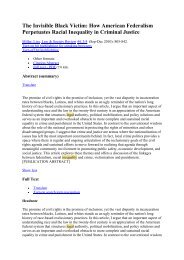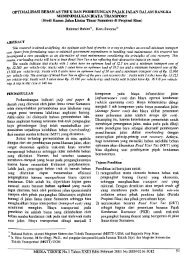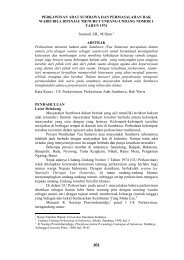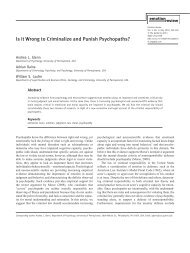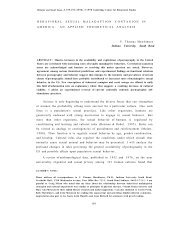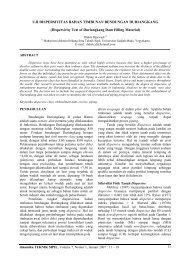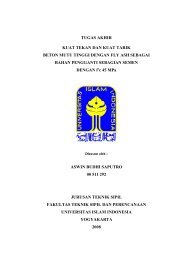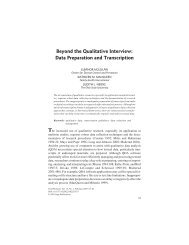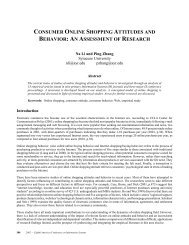Foreign Investment Strategies and Sub-national ... - E-Journal
Foreign Investment Strategies and Sub-national ... - E-Journal
Foreign Investment Strategies and Sub-national ... - E-Journal
Create successful ePaper yourself
Turn your PDF publications into a flip-book with our unique Google optimized e-Paper software.
framework, which thus may favour foreign investors that collaborate with an incumbent firm. This bias of<br />
the institutional framework in favour of incumbents may induce foreign entrants not to invest (hypothesis 1b)<br />
or to form a JV with an incumbent. A JV also helps foreign entrants to establish legitimacy within the local<br />
business environment (Peng 2003).<br />
In transition economies, SOEs are still important players <strong>and</strong> newcomers may find a partnership an<br />
important means to attain legitimacy (Peng <strong>and</strong> Heath 1996, Hoskisson et al. 2000, Lyles et al. 2004).<br />
Moreover, where SOEs dominate the economy, they also control access to crucial local assets <strong>and</strong> old-style<br />
business networks. SOEs in transition economies often pursue network-based growth strategies (Peng <strong>and</strong><br />
Heath 1996) <strong>and</strong> may thus see a JV with a foreign partner as an opportunity to strengthen their market<br />
position (Fahy et al. 2000, Hitt et al. 2000). Thus, where SOEs are strong, foreign investors may find it more<br />
difficult to prosper on their own. They may, therefore, seek partnership with local firms. Institutional<br />
analysis thus suggests that strong incumbents would induce foreign investors to seek JV as mode of entry<br />
based on three complementary effects: the local firms’ control over resources, the newcomer’s need to gain<br />
legitimacy, <strong>and</strong> the lobbying power of incumbents.<br />
H2b: The more state-owned enterprises dominate a sub-<strong>national</strong> region, the less FDI is in the form of<br />
Greenfield.<br />
Institutions affect different types of foreign investors in different ways. For this reason, a hypothesis<br />
stipulating which investors may be more exposed to institutional pressures to access local resources via a JV<br />
is included. Investors pursuing objectives that may conflict with the objectives of local firms are more likely<br />
to face pressures for legitimacy, need for local resources, <strong>and</strong> adverse lobbying. This includes, in particular,<br />
investors aiming to dominate local markets. On the other h<strong>and</strong>, industrial policy may aim to influence the<br />
type of FDI (Lall 1996) for such reasons as to increase spillovers from export-oriented ventures. In return for<br />
commitment to export, investors attain easier access to local resources, business licenses <strong>and</strong>, in the<br />
Vietnamese context, l<strong>and</strong>-use rights. Consequently, export-oriented investors are less concerned with linking<br />
18


